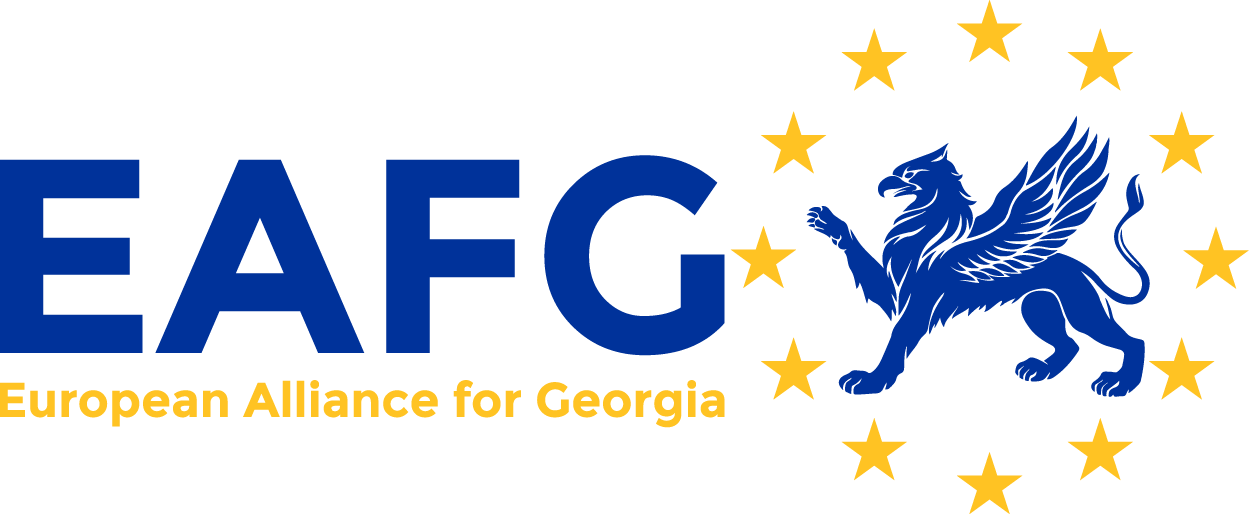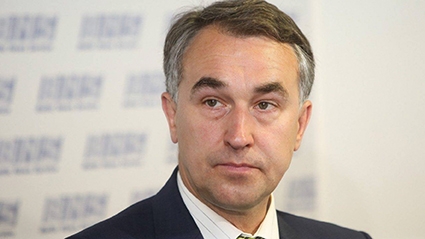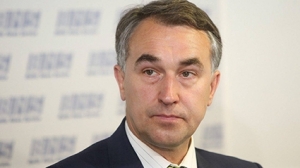MEP Austrevicius: We Must Commit to Working through the Complications
Exclusive interview
Continuing the series of interviews with Members of the European Parliament, GEORGIA TODAY sat down with Lithuanian MEP Petras Austrevicius to pick his brains about the Archil Tatunashvili case and Russo-Georgian relations.
It took 26 days for the de facto Tskhinvali government to transfer the body to the Georgian side, and the body shows clear signs of violence. What can you conclude from this?
I consider this a very serious incident which requires comprehensive investigation not just from the Georgian side but the involvement of so-called South Ossetian authorities must be ensured, and I hope that the European Union representatives will show enough interest to follow the investigation to the very end. Not just because a person vanished, a former soldier, whose position was clearly set to defend the sovereignty of Georgia, but because of the circumstances; why the body was kept for so long. It’s a disgrace to the deceased person. I expect a thorough investigation look forward to seeing the results. Such events illustrate that tensions are high, and the price paid by Georgia is also very high.
This incident resulted in a massive public outcry in Georgia. The gov’t and opposition adopted a resolution called Otkhozoria-Tatunashvili to put sanctions on the people involved in the killings. Can we expect some sort of reciprocated sympathy from the Western allies?
The EU and the West in general have been of the continuous position since 2008 that we do not recognize the annexed and occupied territories, neither Abkhazia nor South Ossetia. I agree that sympathy should be demonstrated continuously and for each case- the killed former soldier, interrogation of locals and so on. We have to demonstrate our strong stance of non-acceptance because, let’s be clear, the Russian Federation better understands the situation when we keep a very strong, solid and united position. We see it in the case of Ukraine; we see it in the case of Moldova as well as in Georgia. This year, we will have the 10th anniversary of those very sad events which led to the loss of a big part of the Georgian territory. I am looking forward to those days and I hope the European Parliament will come up with a strong position, resolution and more. Even waiting for this resolution, events like that show a great demand for the repeated and united position of the European Parliament and the EU in general. I expect that our ministers, during council meetings, as well as our heads of state, will demonstrate solidarity with the Georgian side and of course, not just demonstrate solidarity but bring proposals which might de-escalate the situation and bring the daily life of local citizens on the administrative line to something more acceptable. We should not be short of proposals how to come to the table of negotiations and should proceed with the negotiations expecting very real results.
I remember discussing with you the Afghan Mukhtarli case. You were one of the co-authors of the resolution. Yet we have not seen the same momentum behind this case in the European Parliament. Should we expect stronger words?
Afghan Mukhtarli has been given a very harsh, unreasonable sentence from the Azerbaijani court based on complete falsification. We see a certain responsibility which comes from the Georgian side as well, because he was forcefully abducted and kidnapped and lost his freedom on the streets of Tbilisi. I don’t think we should neglect the seriousness of all those cases - I mean, if you are kidnapped in pure daylight in the center of Tbilisi, one case might lead to another. We expect more from the engaged partners and this case is not forgotten.
You mentioned that the sides should come together to the negotiation table, but it’s widely believed that the death of Tatunashvili was revenge for his participation in the 2008 war. In Tskhinvali, people demanded the body not be given to his family. When we have such circumstances, what kind of public diplomacy is expected to work and what grounds for negotiation do we have?
Nobody doubts the situation on the administrative line and in the exchange between the authorities is tense. But you know it’s well said by great minds before us that peace agreements can be reached between enemies, not between friends. Of course, we understand all the complications, but we have to agree on the most acceptable compromise and to reach the best you can expect from today’s situation. It means that negotiations will be very complicated, but it’s better to be engaged in negotiations and to expect some results because today’s situation is bad for all. We have to commit ourselves to complicated, long-term, uneasy negotiations in order to reach an acceptable situation. I hope the sovereignty of Georgia is the red line. We have to know it. I don’t want to predict any troubles in future but maybe those who don’t want to reach an agreement create such situations on purpose and they want more complications, less talk, and more uncertainty around Georgia. It doesn’t help Georgia, after all. We wish Georgia to continue growing economically, to be politically stable and engaged. These tensions are in somebody’s plans, but not in Tbilisi’s.
There was a petition from a colleague of mine that we change the name of the so called ‘Moscow district’ of Tbilisi to the Tatunashvili district. Has anything like this happened in Lithuania? How would Lithuanians react?
Well, we have renamed streets at the right time, where there are historical names which should be brought back. Justice and historical justice should be remembered. We’ve all been through uneasy times of renaming, removing and so on. I personally asked the Georgian foreign minister in 2008 or 2009 to remove the statue of Stalin in Gori. Then it was taken well, though it may have provoked a national outcry and tensions, but it was done. I’m sure in most cases, Georgians are very rational people; they know their history and recognize their heroes. To name a village or street after Tatunashvili would be normal to commemorate his deeds and his personality. Whether it replaces the name ‘Moscow’ or not is for the Georgians to decide. I think each and every nation should remember its heroes and pray for all heroes, but not for heroes imposed on them by foreign countries.
On to the Russian elections. Is this the beginning of the end of Putin’s regime? As both the Kremlin and Putin look for a successor, what should we expect?
We should find the right name for those procedures we saw on March 18. I think Mr. Putin returned to power and prolonged his tenure not just for fun: he has a strategy. He didn’t come for formal reasons. He has a strategy for Russia and he wants to be a leader of Russians for six more years. Will it be the last term for him? Let’s not be so optimistic and naïve. I don’t believe he plans to leave too early. I think his narrative is even more hardline now, that he came with even more nationalistic rhetoric on the day of the occupation of Crimea, was clearly no coincidence.
His mention of weapons is a frightening scenario for our cooperation. I think we, the West, have to be serious, not frightened and give up the sanctions too early. We know why the sanctions were imposed. It’s not because of us, not because we made mistakes; we have to react to the policy line of the Russian Federation. That’s why I hope we will be rational enough, open minded, and not be early in removing sanctions because we believe that Mr. Putin in the fourth term of his leadership will have different shoes.
You mentioned Putin has a strategy. What do you think this strategy spells for Eastern Partnership countries?
I don’t see any sign that Mr. Putin has given up the fight for the neighborhood and this is his strong red line: he doesn’t want Georgia, Ukraine and especially Moldova to succeed and set a bad example of him. Russia is going through reforms and changing for the better and people understand fear of government. I don’t think the fight is over; let’s not be so naïve. Georgia made a major step forward, started comprehensive reforms which are ongoing now, and the future might be sometimes complicated because reforms will involve a lot of political debate and uncertainty. What I’m looking at is the whole package of political reforms; if people are given more power, are treated as they should be- as equals, as citizens who are given the chance to really decide on future coalitions and leading politicians, then it will surely distance you from authoritarianism.

Vazha Tavberidze












